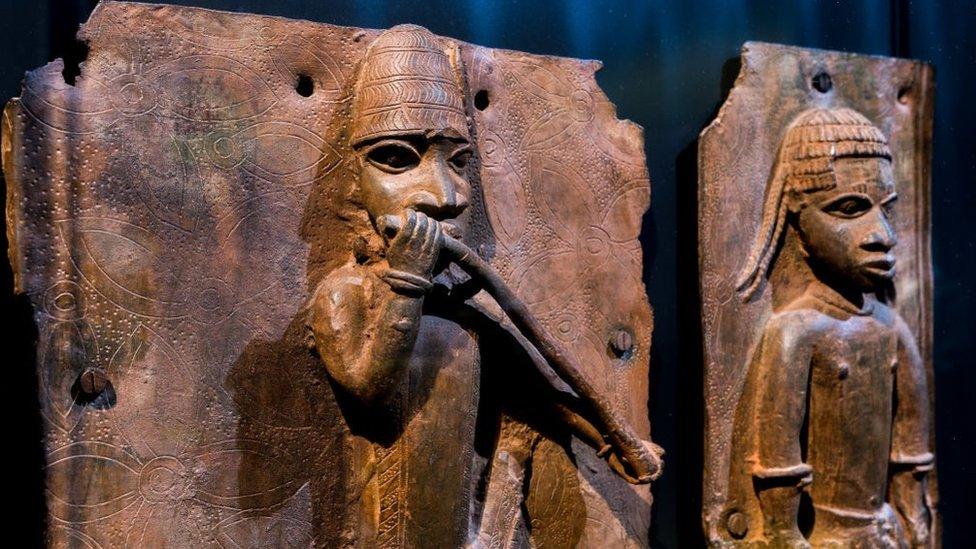Newcastle's Hancock museum to repatriate Benin Bronze stave
- Published
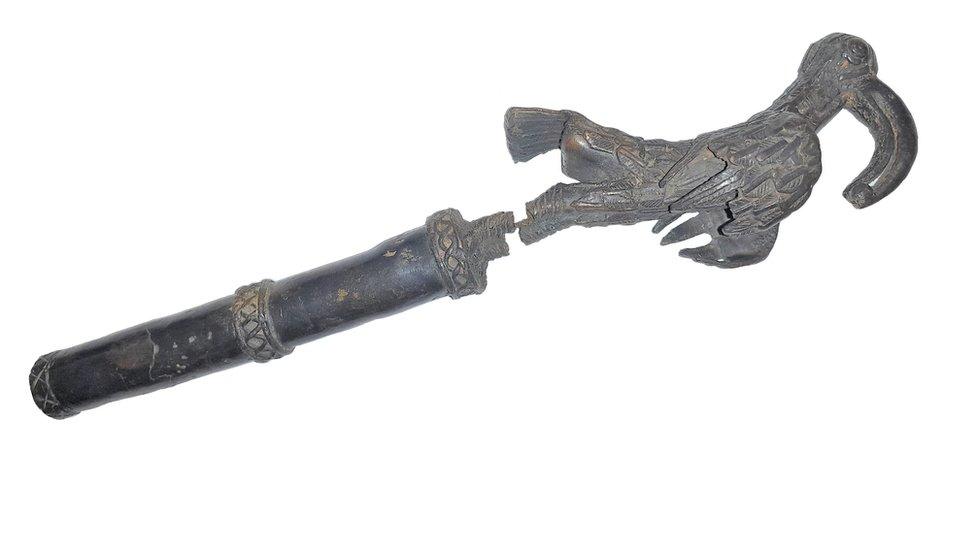
The item is thought to be a musical instrument which would be struck with a metal rod
A Benin Bronze "taken violently" by the British military in the 19th Century will be returned to Nigeria.
The item has been held at the Great North Museum: Hancock in Newcastle in its ethnography collection.
The brass stave, with a bird sculpture on top, is likely to have been a musical instrument which was stuck with a metal road during ceremonies.
Museum bosses said it had been unanimously agreed to repatriate it and Nigerian authorities had been told.
The Bronzes - thousands of metal sculptures and ivory carvings - were seized from the West African kingdom of Benin, in what is today Edo State in southern Nigeria, by a British military force in 1897.
Many ended up being sold to museums or private collectors.
The stave was acquired in 1951 along with other items in the Wellcome Historical Medical Museum's collection, which was then incorporated into the Natural History Society of Northumbria.
Newcastle University has overall responsibility for the stewardship of these collections, which are managed on its behalf by Tyne and Wear Archives and Museums.
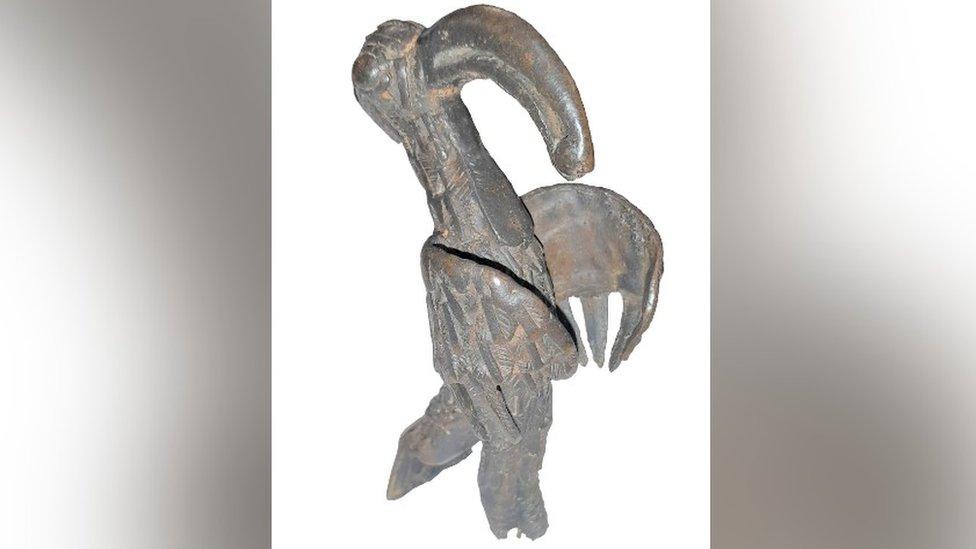
The history of the collections at the museum spans over 250 years
The archives and museums director Keith Merrin said it was "right" to return the stave to Nigeria.
"We have been researching the unclear history of the brass stave and now know for certain that it was taken violently during the Punitive Expedition of 1897," he said.
"Repatriation can be a powerful cultural, spiritual and symbolic act which recognises the wrongs of the past and restores some sense of justice."
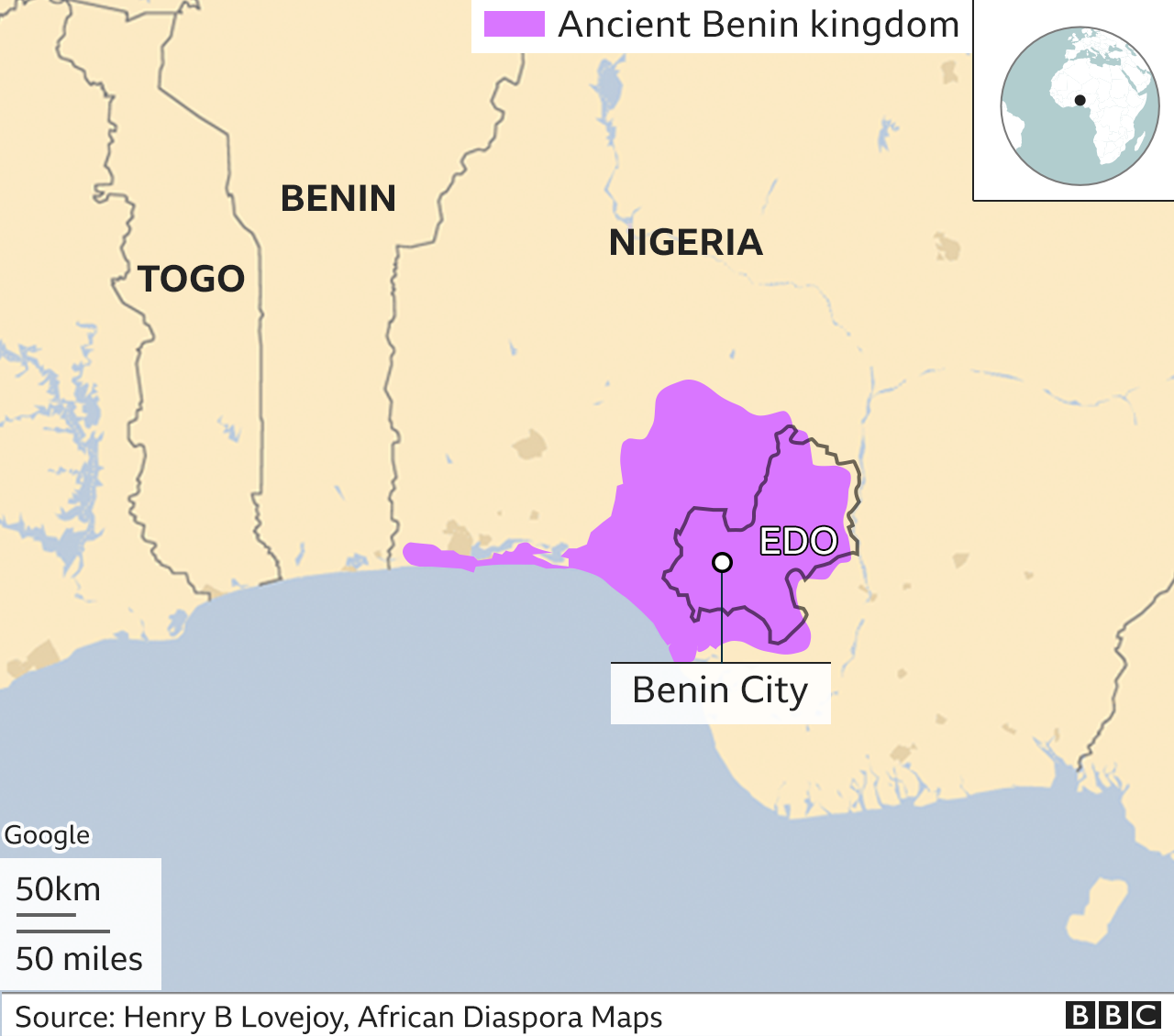
Prof Vee Pollock, dean of culture and the creative arts at Newcastle University, said there was "no hesitation" in returning the ceremonial stave.
"As well as an important cultural artefact for the people of Benin, this brass stave is also a symbol of historic injustice and extreme violence.
"A museum, through what it displays, how it relates to its audiences and what it does, should be a place of learning, and we hope that through this process we can work with partners in Nigeria and the National Commission for Museums and Monuments to facilitate better understanding and enhanced co-operation."
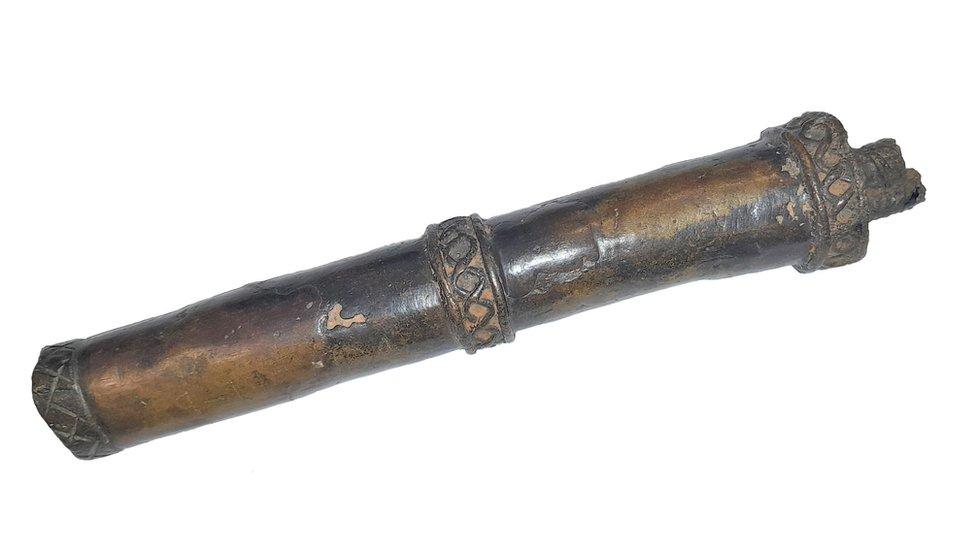
Authorities in Nigeria have been contacted about its return
The decision was taken following specialist advice from Aberdeen University, which itself returned a "priceless" sculpture in October.
The history of the collections at the Great North Museum: Hancock spans over 250 years.
Experts there acknowledge a number of objects are "inextricably linked with Britain's colonial past and systemic racism" and are working towards using these collections "in an equitable and just way".

Follow BBC North East & Cumbria on Twitter, external, Facebook, external and Instagram, external. Send your story ideas to northeastandcumbria@bbc.co.uk, external.
Related topics
- Published28 October 2021
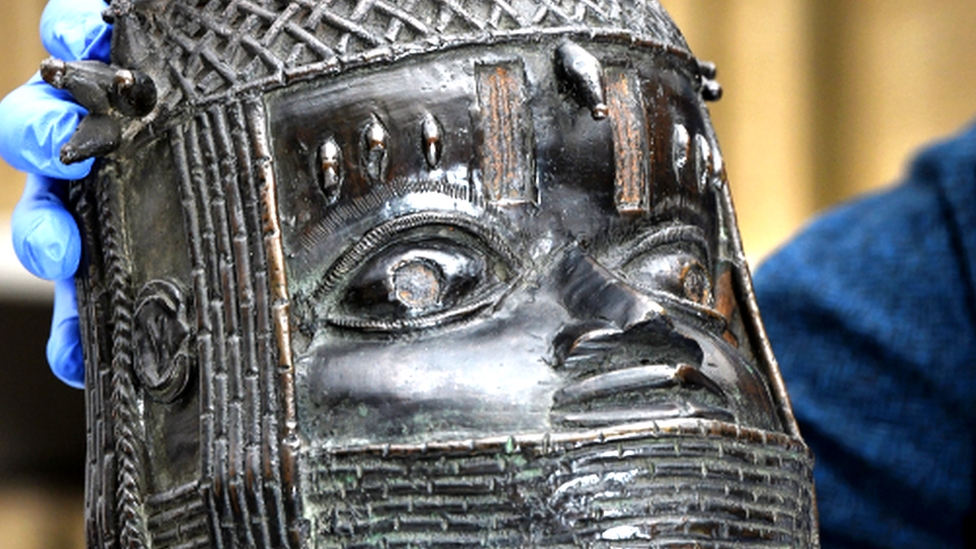
- Published22 July 2021
